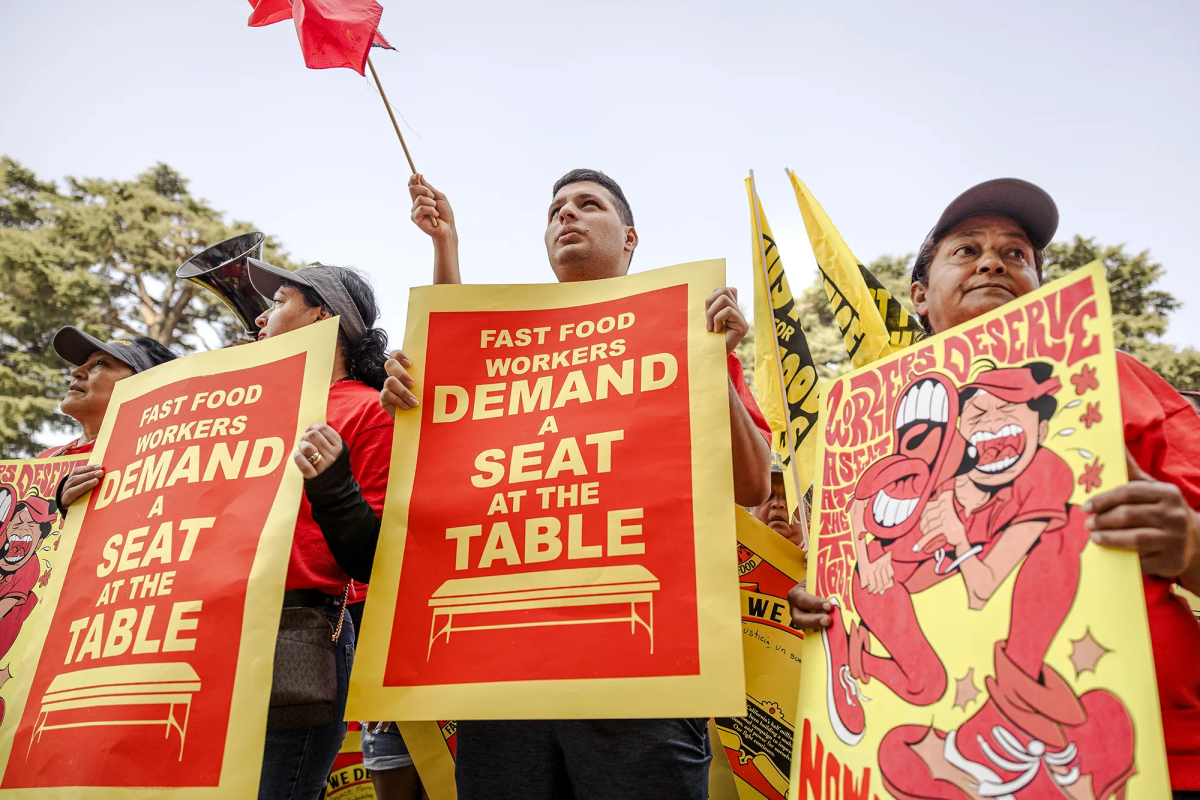Since Jan. 1, 2024, California’s minimum wage has increased to $16.00 per hour, according to the Department of Industrial Relations (DIR). This landmark is a $0.50 increase compared to last year’s minimum wage. The rise is effective with legislation AB 1228 signed on Sep. 28, 2023, covering demands for new minimum wages, workplace health and safety standards, and avoidance of retaliatory actions against employees involved in council events.
Fast food restaurants with at least 60 locations nationwide will follow a minimum wage of $20.00 per hour starting on Apr. 1, 2024. By comparison, in 2023, fast food restaurant workers earned $16.60 per hour.
“A lot of businesses have focused on employee retention and satisfaction,” labor and employment attorney Christopher Olmstead said in an NBC 7 San Diego News Report. “I think part of that is because the labor market is challenging these days and businesses want to make sure they can fill those positions and retain workers once they’ve been trained.”
Olmstead says this rise might enact change on how companies value overlooked workers, and that many industries have already adapted to this. Businesses may now value company culture and room to advance in order to retain their workers who would rather work for higher wages in fast food restaurants.
In fact, many cities have raised their minimum wage to prevent situations like this, such as Los Angeles with a minimum of $16.78 per hour and Palo Alto with a minimum of $17.80 per hour.
These wage increases apply to all of California and is required for all California employers to enact. With inflation increasing the cost of living, this legislation ensures the benefits and safety of workers and helps keep the job market balanced. However, some worry that this will cause product prices to increase and employers might spend less money on business maintenance costs.
“You might have longer lines, you might have dirtier dirty restaurants, there is even a study from Seattle [where] when they raised the minimum wage hygiene violations increased, but consumer prices is also one potential route,” economist and professor at the University of Illinois Chicago David Neumark said.
In addition to food quality, food prices will also rise. According to economics professor Orley C. Ashenfelter’s 2021 research about minimum wages at McDonald’s, people would pay a 6% increase for the minimum wage raise — that means $7.42 for a $7 Big Mac.
California’s minimum wage increase is only the start of a labor market change. With inflation in prices and the current unemployment rate, whether or not the minimum wage will decrease or increase the unemployment rate is still a question for many fast food workers and employers.






























































